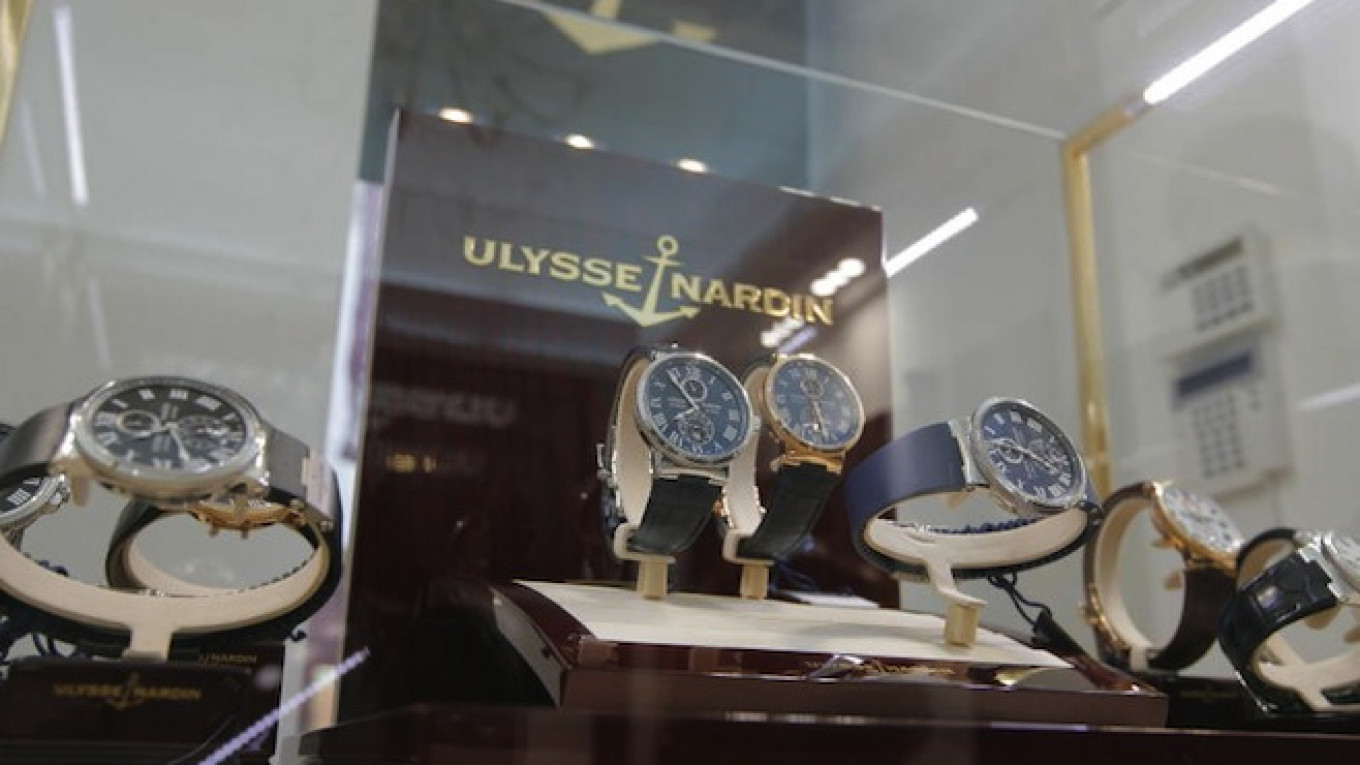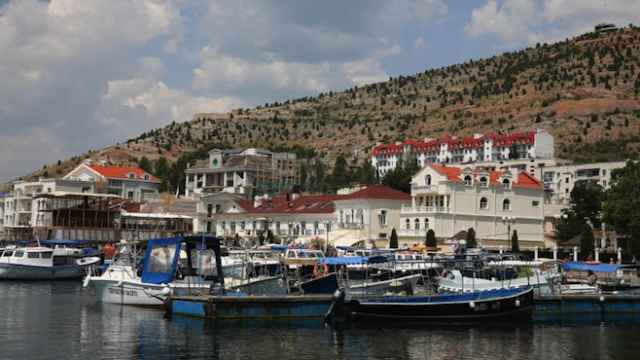Russia's lurch into recession has hit many tourism and luxury goods companies hard, forcing them to cut prices — and in turn costs — in an attempt to limit the damage.
And there are few signs things will get better soon, with a fragile cease-fire in eastern Ukraine doing little to ease international tensions over Moscow's support for pro-Russian separatists in the region.
The ruble lost almost half of its value against the U.S. dollar over the last year after oil prices crashed and the West imposed sanctions on Moscow. That has crushed Russians' spending power, forcing them to cut back and put pricey holiday plans on hold.
Spending on international travel by Russians fell by 6 percent in 2014, according to the UN World Tourism Organization, a sharp drop from growth of more than 20 percent previous years.
Russian tourists are major buyers of luxury goods, particularly in European capitals such as Milan where they are regular customers of brands such as Ferragamo, Moncler and Kering's Italian tailor Brioni.
Clerks at the menswear department of posh Milan department store Rinascente said Russian clients had virtually disappeared.
According to tax-refund company Global Blue, spending by Russian tourists fell 17 percent last year, and plunged 51 percent in January following a 44 percent fall in December.
Although there was an unexpected spike in sales for some in December as Russians offloaded the fast-depreciating rubles for durable luxury goods such as Cartier watches, many brands are preparing for a tough 2015.
Italian fashion group Roberto Cavalli expects Russian sales to drop 20 percent this year, while LVMH's watch brand Hublot has already seen sales decline 20 percent in Russia since January, a source close to the company said.
How Best to Cope?
Eager to preserve client relationships, some brands have kept a lid on Russian prices at the expense of margins.
Jerome Biard, who exports Swiss watches to Russia through his distribution company LPI and represents brands such as Burberry, Michael Kors, Armani and Raymond Weil, has suffered an extra blow from a surge in the Swiss franc, but has held back from passing the costs on to customers.
"My strategy was to protect my distributors and help them empty their stocks at the end and beginning of the year, so we all agreed to sacrifice our margins," Biard said.
LVMH's Swiss luxury brand Tag Heuer, whose boutique in Yekaterinburg enjoyed record sales in December, said it kept prices relatively unchanged in Russia last year, though now plans to raise prices by around 20 percent this month.
Several lingerie providers such as Lise Charmel have also made efforts to keep prices affordable in Russia, which has been one of their top export markets.
But some have had to cut costs to cope.
Mid-range French lingerie maker Maison LeJaby, which counts on Russia for 30 percent of turnover, has had to shed 27 percent of its staff, or 50 people, this month.
Upmarket watchmaker Ulysse Nardin, recently acquired by Gucci owner Kering, last month put some employees on temporary unemployment, blaming the slump in Russian business.
Tourism Hit
It's been a similar story for airlines, tour groups and hotels with a big exposure to Russia.
Some hotels in Turkey have slashed prices to fill beds after arrivals from Russia dropped by more than 21 percent in 2014, and by 22 percent in January.
"We believe that the Russians won't come [to Turkey]," said Markus Daldrup, managing director at German tour operator Alltours, which is offering price cuts of up to 24 percent on summer trips to Turkey.
Egypt, whose tourism sector gets 30 percent of its business from Russia, saw a 50 percent plunge in visits from Russians in December, and another 20 percent in January year-on-year.
The country waived the $25 dollar visa fee for Russians through the end of April and plans to launch a massive campaign in Russia in the next months to win back customers.
Several airlines, such as Emirates, have responded to the decline in Russian travel abroad by offering fewer flights or seats to the country.
The posh ski resort of Courchevel estimates its Russian clientele has shrunk by 20-30 percent this year, and those that have come have spent less.
"Before you would often see Russian clients buying bottles of wine at 6,000 euros, now they only get those for a few hundred euros," said Adeline Roux, head of tourism at the resort.
A Message from The Moscow Times:
Dear readers,
We are facing unprecedented challenges. Russia's Prosecutor General's Office has designated The Moscow Times as an "undesirable" organization, criminalizing our work and putting our staff at risk of prosecution. This follows our earlier unjust labeling as a "foreign agent."
These actions are direct attempts to silence independent journalism in Russia. The authorities claim our work "discredits the decisions of the Russian leadership." We see things differently: we strive to provide accurate, unbiased reporting on Russia.
We, the journalists of The Moscow Times, refuse to be silenced. But to continue our work, we need your help.
Your support, no matter how small, makes a world of difference. If you can, please support us monthly starting from just $2. It's quick to set up, and every contribution makes a significant impact.
By supporting The Moscow Times, you're defending open, independent journalism in the face of repression. Thank you for standing with us.
Remind me later.






